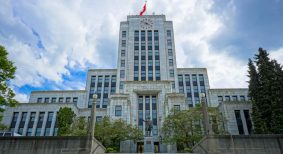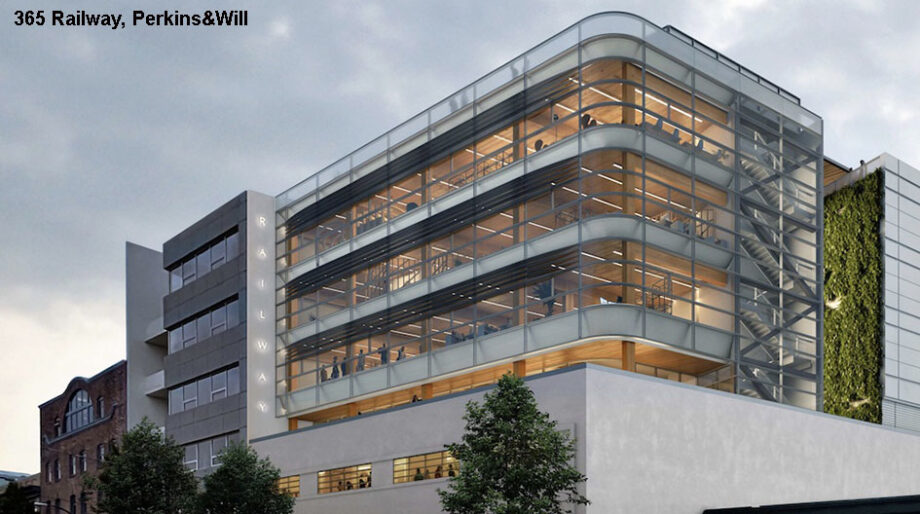The inaugural BC Embodied Carbon Awards, hosted by the Carbon Leadership Forum British Columbia (CLF British Columbia), recognized small and large projects as well as those organizations and municipalities currently excelling in committing to make the change in reducing embodied emissions.
While most conversations on building emissions largely focus on the pollution they produce during their operation, embodied carbon is that which is generated during the production and transport of their component materials, such as steel and concrete, and those associated with their construction and eventual disposal.In 2019, the City of Vancouver set a goal to reduce embodied carbon in new buildings 40 per cent by 2030, compared to 2018 levels. Starting in July 2023, the city will begin requiring developers to calculate and report embodied carbon in all their new projects.WinnersSmall Buildings – VancouverThird Space Commons, Third Quadrant Design
- This project at UBC’s campus, with input from a student design team, is a first, using an existing single-family home which will be deconstructed and reuse materials and systems from the original building.
Small Buildings – British ColumbiaInlet View, Carbonwise
- This is a single-family home where the client went beyond regular construction standards.
Large Buildings – Vancouver365 Railway, Perkins+Will
- This is a mass timber addition of four storeys to an existing two-storey concrete building originally built in 1949.
Large Buildings – British ColumbiaDiscover Montessori, Checkwitch Poiron Architects Inc
- This is a project to build a school located in Nanaimo, BC.
Commitment to Change – Public, not for profit organizations
- City of Nelson
Commitment to Change – Private organizations
- EllisDon
“This is the first time we’ve had these awards. It’s an important way to celebrate those who are helping to accelerate the effort to reduce embodied emissions in the BC building sector. This awards program is also a demonstration of leadership and climate actions that are much needed and achievable today as we work towards 2030 emissions reduction targets,” said Dr Peter Robinson, chair, Metro Vancouver Zero Emissions Innovation Centre.
CLF British Columbia, a program area of the Zero Emissions Building Exchange (ZEBx) and part of the Metro Vancouver Zero Emissions Innovation Centre (ZEIC), is B.C.’s centre of excellence in low carbon building design.










